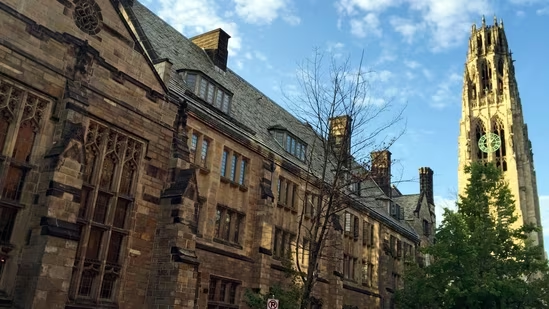Yale Student acquitted of rape sues accuser, challenges campus Title IX hearings
In a case that has ignited a debate over due process in campus sexual assault hearings, Saifullah Khan, a former Yale University student, is challenging the way universities across the United States handle allegations of sexual misconduct. His story is one of two hearings, two outcomes, and a defamation lawsuit that could reshape Title IX procedures.

Khan's found himself accused of rape following a Halloween party in 2018. At Yale, his accuser gave a statement via teleconference to a university panel. Notably, Khan and his lawyer were not allowed in the room with the panel, nor could they cross-examine her. Instead, they were confined to a separate room, receiving her testimony through a speakerphone. Khan was subsequently expelled.
However, Khan's criminal trial had a different outcome. His lawyer cross-examined the accuser, raising questions about her attire, alcohol consumption, and text messages. After just three hours of deliberation, Khan was acquitted.
The discrepancy between the two hearings prompted Khan to sue his accuser for defamation, challenging the way universities handle sexual assault cases. Such a lawsuit would typically face significant hurdles due to absolute immunity granted to witnesses in quasi-judicial hearings in many states. However, the Connecticut Supreme Court's June ruling allowed Khan's defamation lawsuit to proceed, stating that the Yale hearing lacked due process, including the ability to cross-examine witnesses.
The decision only applies within Connecticut but has sent shockwaves through universities nationwide. College officials are now reconsidering their disciplinary hearing processes, fearing potential defamation lawsuits against witnesses.
The case has intensified an ongoing debate over how colleges handle sexual assault allegations on campus, balancing fairness for both parties. Title IX, the federal education law governing such cases, has seen shifting guidelines under different administrations.
The Obama-era guidance discouraged cross-examination, while the Trump administration mandated it. The Biden administration is expected to revise Title IX, potentially returning to the Obama-era approach, which makes cross-examination optional.
However, the threat of defamation lawsuits like Khan's could dissuade sexual assault survivors from coming forward. They may face the difficult choice of forgoing cross-examination, exposing themselves to defamation claims, or submitting to an interrogation during hearings.
Women's rights advocates argue that cross-examination can be intimidating and retraumatizing for victims. They believe current procedures already provide due-process rights, such as responding to investigator reports and submitting written questions to the hearing panel.
Also Read | Charges of rape, sexual assaults and emotional abuse: What four women have alleged against Russell Brand
The Connecticut Supreme Court's decision did not address the merits of Khan's defamation case but underscored the belief that colleges may be ill-equipped to handle rape accusations.
While some argue that cross-examination is essential for fairness, others believe it may not be effective at uncovering the truth. Critics say it often rewards those with powerful attorneys and may discourage reporting.
Khan's defamation lawsuit, currently in U.S. District Court in Connecticut, remains uncertain. Legal experts suggest it could run up significant bills and prolong proceedings, potentially deterring others from pursuing such cases. Khan's larger mission, he says, is to abolish campus Title IX hearings, a goal he shares with other students accused of sexual misconduct.
Disclaimer: The copyright of this article belongs to the original author. Reposting this article is solely for the purpose of information dissemination and does not constitute any investment advice. If there is any infringement, please contact us immediately. We will make corrections or deletions as necessary. Thank you.
Title:Yale Student acquitted of rape sues accuser, challenges campus Title IX hearings
Url:https://www.investsfocus.com









